- Home
- Nora Roberts
One Summer Page 14
One Summer Read online
Page 14
And she was well skilled at it, he decided. In truth, he’d discovered he admired her for it—not only for her skill, but for her perception. He simply couldn’t rationalize her following the glitz trail. “Culture art?”
If he’d meant it as an insult, however mild, it missed its mark. “Yes. And if you asked, I’d say Shakespeare wrote culture art. Are you hungry?”
“No.” Fascinating woman, he thought, as reluctant as ever to be fascinated. He craved her, it was true. Her body, her company. But he couldn’t resolve the constant fascination she held for him, mind to mind. “You had a bowl of shrimp and rice big enough to feed a family of four before we started out.”
“That was hours ago.”
“Two, to be exact.”
“Picky,” she mumbled, and stared up at the sky. So peaceful, she mused. So simple. Moments like this were meant to be savored. Lowering her gaze, she smiled at him. “Ever made love in a pirogue?”
He had to grin. She made it impossible to do otherwise. “No, but I don’t think we should ever refuse a new experience.”
Bryan touched her tongue to her top lip. “Come here.”
* * *
They left the lazy, insect-humming air of the bayou behind and landed in bustling, raucous New Orleans. Sweating trumpet players on Bourbon Street, merchants fanning themselves in the Farmers Market, artists and tourists around Jackson Square—it was a taste of the South, they both agreed, that was as far apart from the South as San Antonio had been apart from Texas.
From there, they traveled north to Mississippi for a touch of July in the Deep South. Heat and humidity. Tall, cool drinks and precious shade. Life was different here. In the cities, men sweated in white shirts and loosened ties. In the rural districts, farmers worked under the sweltering sun. But they moved more slowly than their counterparts to the north and west. Perhaps temperatures soaring to a hundred and more caused it, or perhaps it was just a way of life.
Children exercised the privilege of youth and wore next to nothing. Their bodies were browned and damp and dusty. In a city park, Bryan took a close-up of a grinning boy with mahogany skin cooling himself in a fountain.
The camera didn’t intimidate him. As she homed in, he laughed at her, squealing as the water cascaded over him, white and cool, until he looked encased in glass.
In a small town just northwest of Jackson, they stumbled across a Little League game. It wasn’t much of a field, and the bleachers looked as if they’d object to more than fifty people at a time, but they pulled off and parked between a pickup and a rusted-out sedan.
“This is great.” Bryan grabbed her camera bag.
“You just smell hot dogs.”
“That, too,” she agreed easily. “But this is summer. We might get to a Yankee game in New York, but we’ll get better pictures here today.” She hooked her arm through his before he could get too far away. “I’ll reserve judgment on the hot dogs.”
Shade took a long, sweeping view. The crowd was spread out, on the grass, in folding chairs, on the bleachers. They cheered, complained, gossiped and gulped iced drinks. He was all but certain everyone there knew one another by name or by sight. He watched an old man in a baseball cap casually spit out a plug of tobacco before he berated the umpire.
“I’m going to wander around a bit,” he decided, considering a seat on the bleachers too limiting for the moment.
“Okay.” Bryan had taken her own scan and considered the bleachers the focal point for what she wanted.
They separated, Shade moving toward the old man who’d already captured his attention. Bryan walked to the bleachers, where she and the onlookers would have a solid view of the game.
The players wore white pants, already grass-stained and dusty, with bright red or blue shirts emblazoned with team names. A good many of them were too small for the uniforms, and the mitts looked enormous on the ends of gangling arms. Some wore spikes, some wore sneakers. A few had batting gloves hung professionally from their back pocket.
It was the hats, she decided, that told of the individual’s personality. One might wear it snug or tipped back, another tilted rakishly over the eyes. She wanted an action shot, something that would bring the color and the personalities together with the sport itself. Until something formed for her, Bryan contented herself with taking a shot of the second baseman, who passed the time until the batter stepped into the box by kicking his spikes against the bag and blowing bubbles with his wad of gum.
Scooting up another step, she tried her long lens. Better, she decided, and was pleased to see that her second baseman had a face full of freckles. Above her, someone snapped gum and whistled when the umpire called a strike.
Bryan lowered her camera and allowed herself to become involved in the game. If she wanted to portray the atmosphere, she had to let herself feel it. It was more than the game, she thought, it was the feeling of community. As the batters came up, people in the crowd called them by name, tossing out casual remarks that indicated a personal knowledge. But the sides were definitely drawn.
Parents had come to the game from work, grandparents had pushed away from an early dinner, and neighbors had chosen the game against an evening by the TV. They had their favorites, and they weren’t shy about rooting for them.
The next batter interested Bryan mainly because she was a strikingly pretty girl of about twelve. At a glance, Bryan would’ve set her more easily at a ballet bar than home plate. But when she watched the way the girl gripped the bat and bent into her stance, Bryan lifted her camera. This was one to watch.
Bryan caught her in the first swing on a strike. Though the crowd moaned, Bryan was thrilled with the flow of movement. She might be shooting a Little League game in a half-forgotten town in Mississippi, but she thought of her studio work with the prima ballerina. The batter poised for the pitch, and Bryan poised for the next shot. She had to wait, growing impatient, through two balls.
“Low and outside,” she heard someone mumble beside her. All she could think was, if the girl walked, she’d lose the picture she wanted.
Then it came over, too fast for Bryan to judge the placement of the ball, but the girl connected with a solid swing. The batter took off, and using the motor drive, Bryan followed her around the bases. When she rounded second, Bryan homed in on her face. Yes, Maria would understand that look, Bryan thought. Strain, determination and just plain guts. Bryan had her as she slid into third with a storm of dust and a swing of body.
“Wonderful!” She lowered the camera, so thrilled that she didn’t even realize she’d spoken out loud. “Just wonderful!”
“That’s our girl.”
Distracted, Bryan glanced over to the couple beside her. The woman was her own age, perhaps a year or two older. She was beaming. The man beside her was grinning over a wad of gum.
Perhaps she hadn’t heard properly. They were so young. “She’s your daughter?”
“Our oldest.” The woman slipped a hand into her husband’s. Bryan saw the plain twin wedding bands. “We’ve got three others running around here, but they’re more interested in the concession stand than the game.”
“Not our Carey.” The father looked out to where his daughter took a short lead on third. “She’s all business.”
“I hope you don’t mind my taking her picture.”
“No.” The woman smiled again. “Do you live in town?”
It was a polite way to find out who she was. Bryan hadn’t a doubt the woman knew everyone within ten miles. “No, I’m traveling.” She paused as the next batter blooped to right field and brought Carey home. “Actually, I’m a freelance photographer on assignment for Life-style. Perhaps you’ve heard of it.”
“Sure.” The man jerked a head at his wife as he kept his eyes on the game. “She picks it up every month.”
Pulling a release form out of her bag, she explained her interest in using Carey’s picture. Though she kept it short and her voice low, word spread throughout the bleachers. Bryan found herself answeri
ng questions and dealing with curiosity. In order to handle it all in the simplest fashion, she climbed down from the bleachers, changed to a wide-angle lens and took a group shot. Not a bad study, she decided, but she didn’t want to spend the next hour having people pose for her. To give the baseball fans time to shift their attention back to the game, she wandered to the concession stand.
“Any luck?”
She swiveled her head around to see Shade fall into step beside her. “Yeah. You?”
He nodded, then leaned on the counter of the stand. There was no relief from the heat, though the sun was lowering. It promised to be as sweltering a night as it had a day. He ordered two large drinks and two hot dogs.
“Know what I’d love?” she asked as she began to bury her hot dog under relish.
“A shovel?”
Ignoring him, she piled on mustard. “A long, cool dip in an enormous pool, followed closely by an iced margarita.”
“For now you’ll have to settle for the driver’s seat of the van. It’s your turn.”
She shrugged. A job was a job. “Did you see the girl who hit the triple?” They walked over the uneven grass toward the van.
“Kid that ran like a bullet?”
“Yes. I sat next to her parents in the stands. They have four kids.”
“So?”
“Four kids,” she repeated. “And I’d swear she wasn’t more than thirty. How do people do it?”
“Ask me later and I’ll show you.”
With a laugh, she jabbed him with her elbow. “That’s not what I meant—though I like the idea. What I mean is, here’s this couple—young, attractive. You could tell they even liked each other.”
“Amazing.”
“Don’t be cynical,” she ordered as she pulled open the door to the van. “A great many couples don’t, especially when they’ve got four kids, a mortgage and ten or twelve years of marriage under their belts.”
“Now who’s being cynical?”
She started to speak and frowned instead. “I guess I am,” she mused as she turned on the engine. “Maybe I’ve picked a world that’s tilted my outlook, but when I see a happily married couple with a track record, I’m impressed.”
“It is impressive.” Carefully, he stored his camera bag under the dash before he sat back. “When it really works.”
“Yeah.”
She fell silent, remembering the jolt of envy and longing she’d felt when she’d framed the Browns in her viewfinder. Now, weeks and miles later, it was another jolt for Bryan to realize she hadn’t brushed off that peculiar feeling. She had managed to put it aside, somewhere to the back of her mind, but it popped out again now as she thought of the couple in the bleachers of a small-town park.
Family, cohesion. Bonding. Did some people just keep promises better than others? she wondered. Or were some people simply unable to blend their lives with someone else’s, make those adjustments, the compromises?
When she looked back, she believed both she and Rob had tried, but in their own ways. There’d been no meeting of the minds, but two separate thought patterns making decisions that never melded with each other. Did that mean that a successful marriage depended on the mating of two people who thought along the same lines?
With a sigh, she turned onto the highway that would lead them into Tennessee. If it was true, she decided, she was much better off single. Though she’d met a great many people she liked and could have fun with, she’d never met anyone who thought the way she did. Especially the man seated next to her with his nose already buried in the newspaper. There alone they were radically different.
He’d read that paper and every paper in every town they stopped in from cover to cover, devouring the words. She’d skim the headlines, glance over the style or society pages and go straight for the comics. If she wanted news, she’d rather have it in spurts on the radio or blurbs on televisions. Reading was for relaxation, and relaxation was not an analysis of détente.
Relationships. She thought back on the discussion she’d had with Lee just weeks before. No, she simply wasn’t cut out for relationships on a long-term basis. Shade himself had pointed out that some people just weren’t capable of permanency. She’d agreed, hadn’t she? Why should the truth suddenly depress her?
Whatever her feelings were for Shade, and she’d yet to define them satisfactorily, she wasn’t going to start smelling orange blossoms. Maybe she had a few twinges when she saw couples together who seemed to complete each other rather than compete, but that was only natural. After all, she didn’t want to start making adjustments in her lifestyle to accommodate someone else at this stage. She was perfectly content the way things were.
If she was in love … Bryan felt the twinge again and ignored it. If she was, it would complicate things. The fact was, she was very happy with a successful career, her freedom and an attractive, interesting lover. She’d be crazy if she wasn’t happy. She’d be insane to change one single thing.
“And it doesn’t have anything to do with being afraid,” she said aloud.
“What?”
She turned to Shade and, to his astonishment and hers, blushed. “Nothing,” she muttered. “Thinking out loud.”
He gave her a long, quiet look. Her expression came very close to a baffled sort of pout. Giving in to the urge, he leaned over and touched a hand to her cheek. “You’re not eating your hot dog.”
She could have wept. For some absurd reason, she wanted to stop the van, drop her head on the steering wheel and drown herself in hot, violent tears. “Not hungry,” she managed.
“Bryan.” He watched her snatch her sunglasses from the dash and push them on, though the sun was riding low. “Are you all right?”
“Fine.” She took a deep breath and kept her eyes straight ahead. “I’m fine.”
No, she wasn’t. Though strain in her voice was rare, he recognized it. Only a few weeks before, he’d have shrugged and turned back to his reading. Deliberately, he dropped the paper on the floor at his feet. “What is it?”
“Nothing.” She cursed herself and turned up the radio. Shade simply switched it off.
“Pull over.”
“What for?”
“Just pull over.”
With more violence than necessary, Bryan swung the van toward the shoulder, slowed and stopped. “We won’t make very good time if we stop ten minutes after we start.”
“We won’t be making any time at all until you tell me what’s wrong.”
“Nothing’s wrong!” Then she gritted her teeth and sat back. It wasn’t any use saying nothing was wrong if you snarled at the same time. “I don’t know,” she evaded. “I’m edgy, that’s all.”
“You?”
She turned on him with a vengeance. “I’ve a right to foul moods, Colby. You don’t have a patent on them.”
“You certainly have,” he said mildly. “Since it’s the first one I’ve witnessed, I’m interested.”
“Don’t be so damn patronizing.”
“Wanna fight?”
She stared through the windshield. “Maybe.”
“Okay.” Willing to oblige, he made himself comfortable. “About anything in particular?”
She swung her head around, ready to pounce on anything. “Do you have to bury your face in a paper every time I get behind the wheel?”
He smiled maddeningly. “Yes, dear.”
A low sound came from her throat as she stared through the windshield again. “Never mind.”
“I could point out that you have a habit of falling asleep when you sit in this seat.”
“I said never mind.” She reached for the key. “Just never mind. You make me sound like a fool.”
He put his hand over hers before she could turn the key. “You sound foolish skirting around whatever’s bothering you.” He wanted to reach her. Without being aware when, he’d passed the point where he could tell himself not to get involved and follow the advice. Whether he wanted it or not, whether she accepted it or not, he wa
s involved. Slowly, he lifted her hand to his lips. “Bryan, I care.”
She sat there stunned that a simple statement could spin through her with such force. I care. He’d used the same word when he’d spoken about the woman who’d caused his nightmare. Along with the pleasure his words brought her came an inescapable sense of responsibility. He wouldn’t allow himself to care indiscriminately. Glancing up, she met his eyes, patient, puzzled, as they studied her face.
“I care, too,” she said quietly. She twined her fingers with his, only briefly, but it unsettled them both.
Shade took the next step carefully, not certain of her, or himself. “Is that what’s bothering you?”
She let out a long breath, as wary as he now. “Some. I’m not used to it … not like this.”
“Neither am I.”
She nodded, watching the cars breeze by. “I guess we’d both better take it easy then.”
“Sounds logical.” And next to impossible, he thought. Right now he wanted to gather her close, forget where they were. Just hold her, he realized. It was all he wanted to do. With an effort, he drew back. “No complications?”
She managed to smile. Rule number one was the most important, after all. “No complications,” she agreed. Again she reached for the key. “Read your paper, Colby,” she said lightly. “I’ll drive until dark.”
Chapter 10
They took a slice out of Tennessee—Nashville, Chattanooga—caught the eastern corner of Arkansas—mountains and legends—and headed up through Twain’s Missouri to Kentucky. There they found tobacco leaves, mountain laurel, Fort Knox and Mammoth Cave, but when Bryan thought of Kentucky, she thought of horses. Kentucky was sleek, glossy Thoroughbreds grazing on rich grass. It made her think of long-legged foals running in wide pastures and wide-chested colts pounding the track at Churchill Downs.
As they crossed the state toward Louisville, she saw much more. Tidy suburban homes bordered the larger cities and smaller towns as they did in every state across the country. Farms spread acre after acre—tobacco, horses, grain. Cities rose with their busy office buildings and harried streets. So much was the same as it had been to the west and to the south, and yet so much was different.

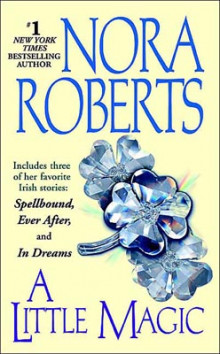 A Little Magic
A Little Magic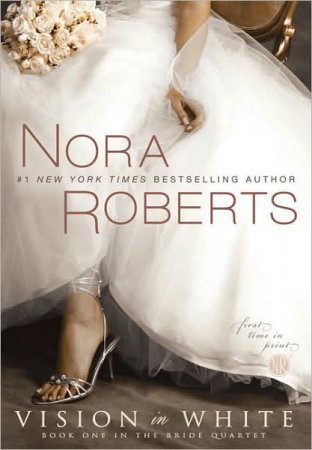 Vision in White
Vision in White True Betrayals
True Betrayals The Next Always
The Next Always A Man for Amanda
A Man for Amanda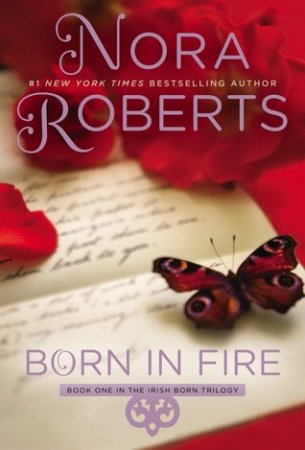 Born in Fire
Born in Fire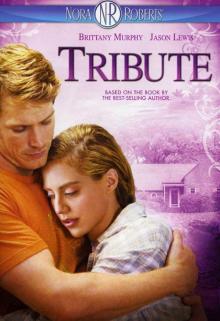 Tribute
Tribute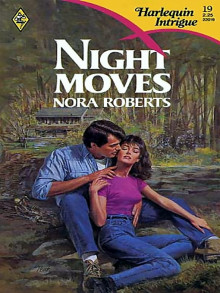 Night Moves
Night Moves Dance Upon the Air
Dance Upon the Air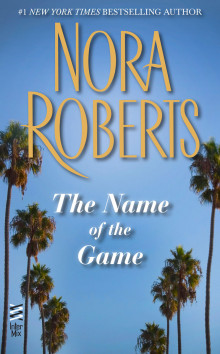 The Name of the Game
The Name of the Game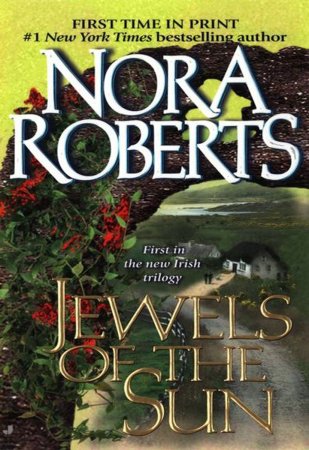 Jewels of the Sun
Jewels of the Sun River's End
River's End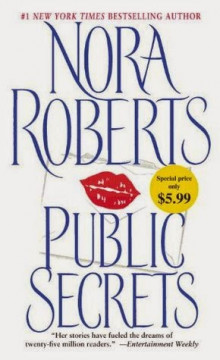 Public Secrets
Public Secrets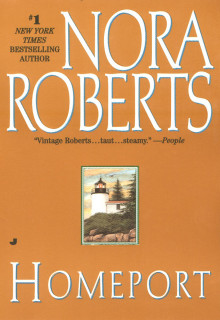 Homeport
Homeport Private Scandals
Private Scandals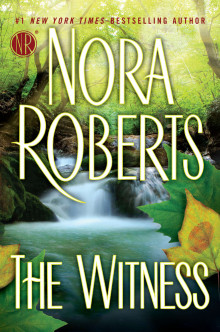 The Witness
The Witness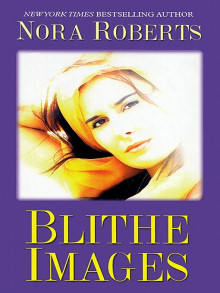 Blithe Images
Blithe Images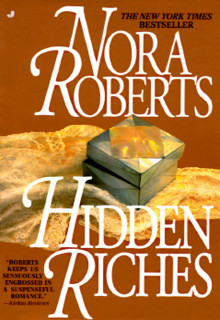 Hidden Riches
Hidden Riches Key of Light
Key of Light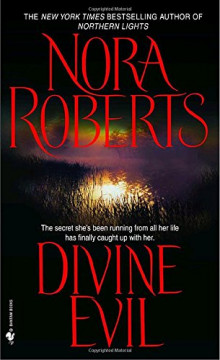 Divine Evil
Divine Evil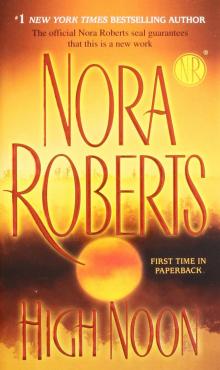 High Noon
High Noon Blue Dahlia
Blue Dahlia Sea Swept
Sea Swept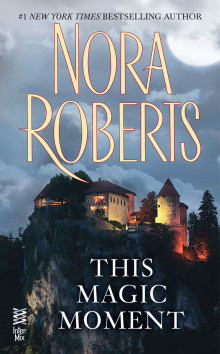 This Magic Moment
This Magic Moment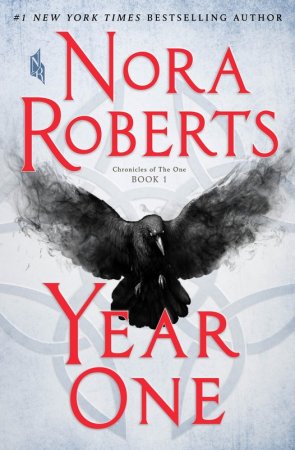 Year One
Year One A Little Fate
A Little Fate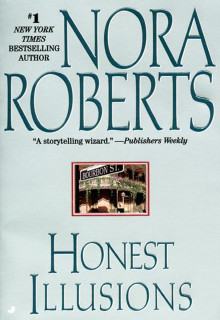 Honest Illusions
Honest Illusions The Reef
The Reef Shelter in Place
Shelter in Place The Hollow
The Hollow Holding the Dream
Holding the Dream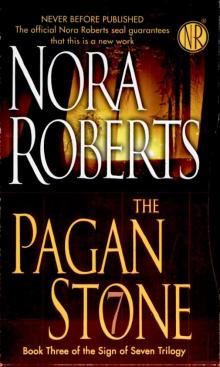 The Pagan Stone
The Pagan Stone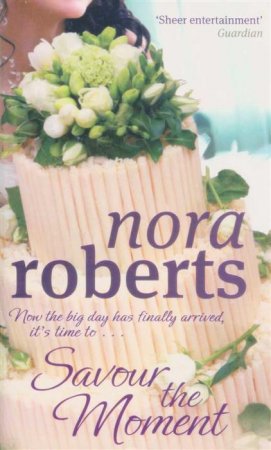 Savour the Moment
Savour the Moment The Perfect Hope
The Perfect Hope Island of Glass
Island of Glass Happy Ever After
Happy Ever After Bed of Roses
Bed of Roses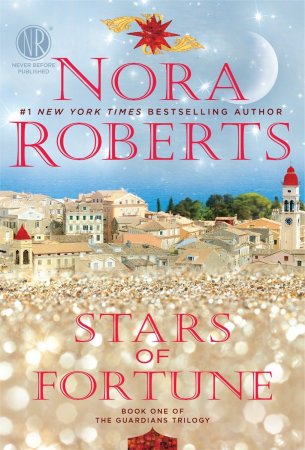 Stars of Fortune
Stars of Fortune Dark Witch
Dark Witch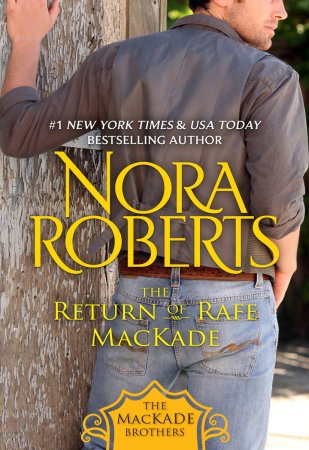 The Return of Rafe MacKade
The Return of Rafe MacKade Chesapeake Blue
Chesapeake Blue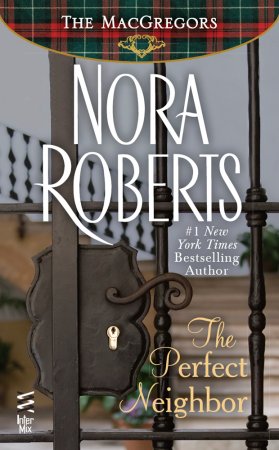 The Perfect Neighbor
The Perfect Neighbor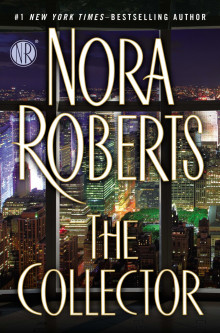 The Collector
The Collector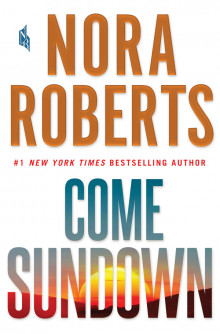 Come Sundown
Come Sundown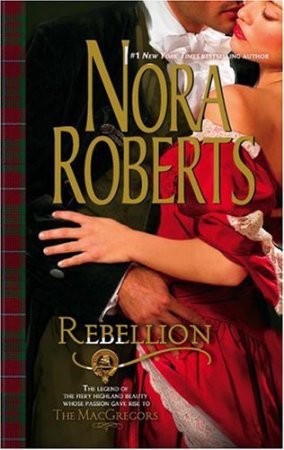 Rebellion
Rebellion Affaire Royale
Affaire Royale Daring to Dream
Daring to Dream Bay of Sighs
Bay of Sighs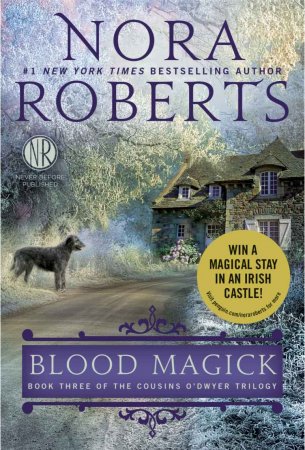 Blood Magick
Blood Magick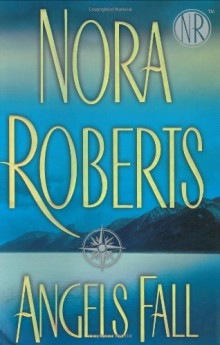 Angels Fall
Angels Fall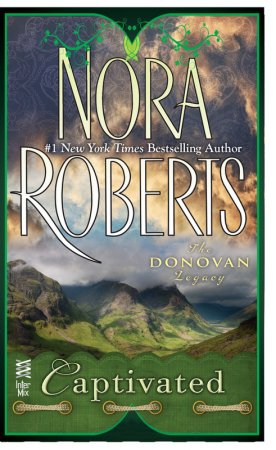 Captivated
Captivated The Last Boyfriend
The Last Boyfriend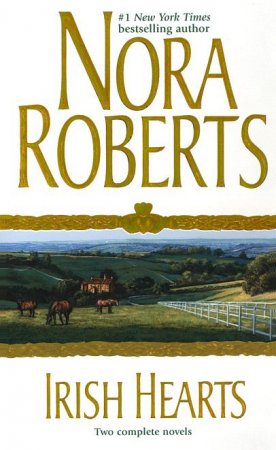 Irish Thoroughbred
Irish Thoroughbred Inner Harbor
Inner Harbor The Right Path
The Right Path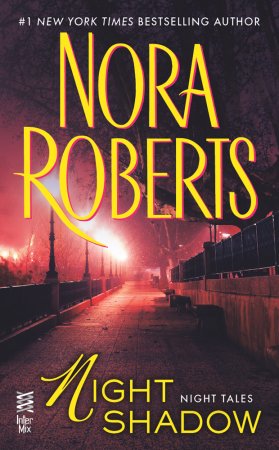 Night Shadow
Night Shadow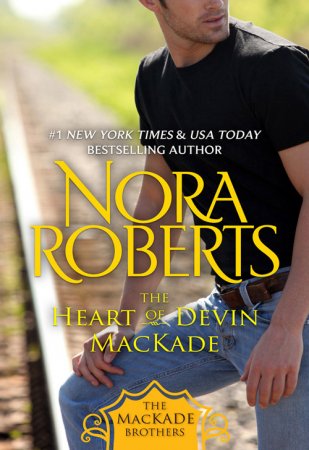 The Heart of Devin MacKade
The Heart of Devin MacKade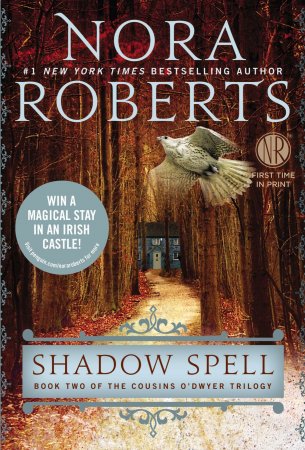 Shadow Spell
Shadow Spell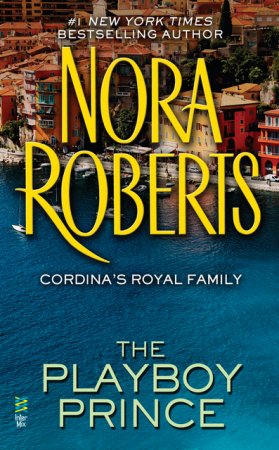 The Playboy Prince
The Playboy Prince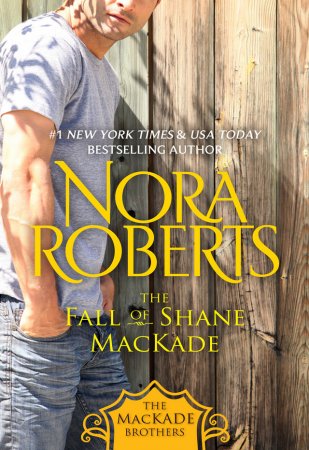 The Fall of Shane MacKade
The Fall of Shane MacKade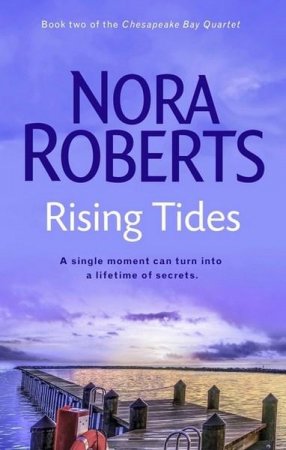 Rising Tides
Rising Tides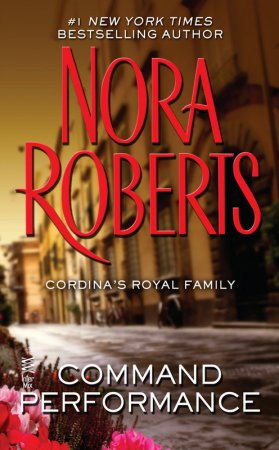 Command Performance
Command Performance Hidden Star
Hidden Star Cordina's Crown Jewel
Cordina's Crown Jewel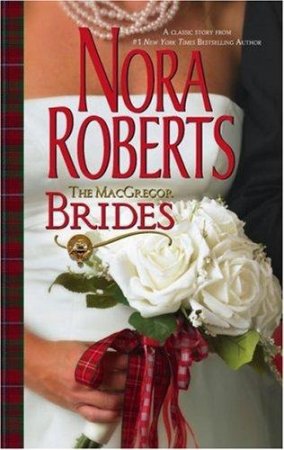 The MacGregor Brides
The MacGregor Brides The Pride of Jared MacKade
The Pride of Jared MacKade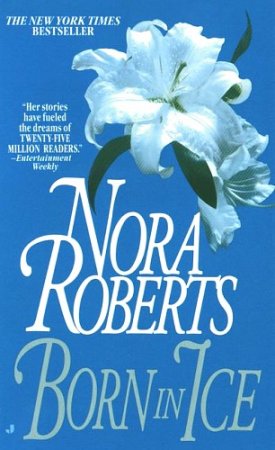 Born in Ice
Born in Ice Whiskey Beach
Whiskey Beach The Last Honest Woman
The Last Honest Woman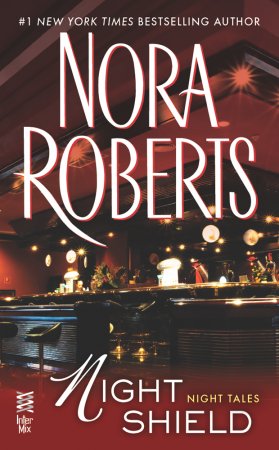 Night Shield
Night Shield Born in Shame
Born in Shame Secret Star
Secret Star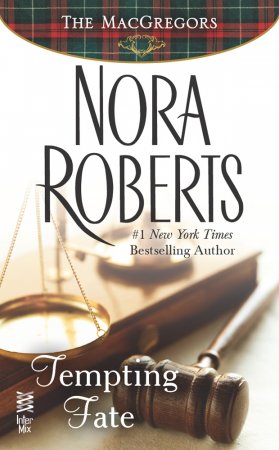 Tempting Fate
Tempting Fate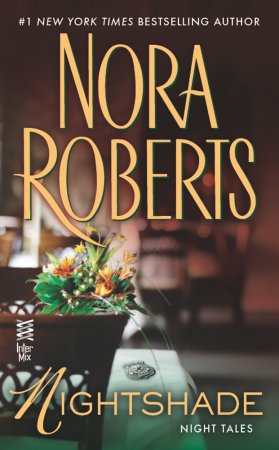 Nightshade
Nightshade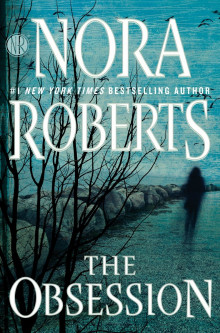 The Obsession
The Obsession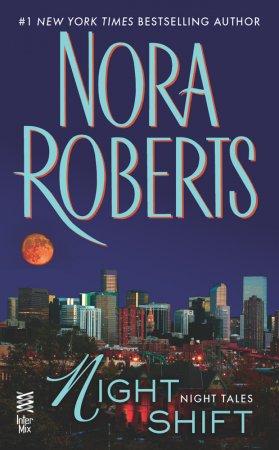 Night Shift
Night Shift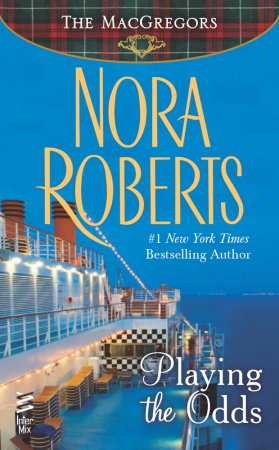 Playing The Odds
Playing The Odds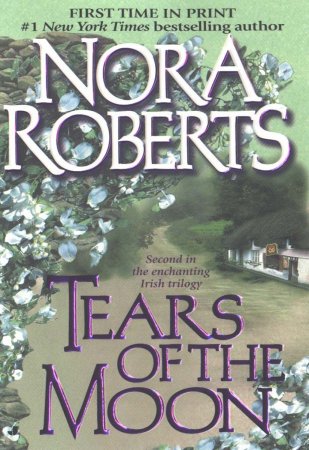 Tears of the Moon
Tears of the Moon One Man's Art
One Man's Art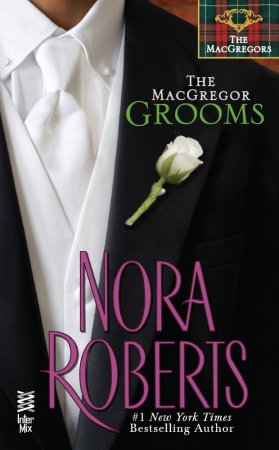 The MacGregor Groom
The MacGregor Groom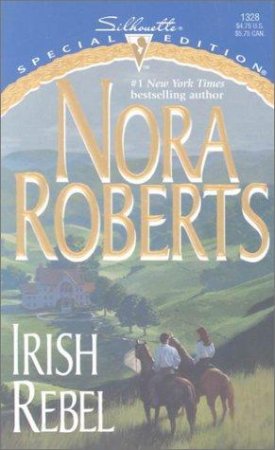 Irish Rebel
Irish Rebel Morrigan's Cross
Morrigan's Cross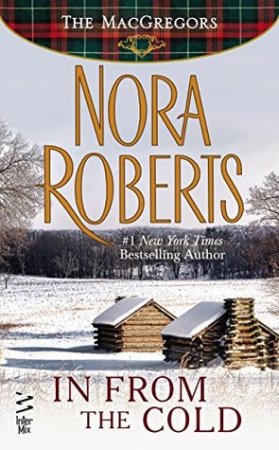 In From The Cold
In From The Cold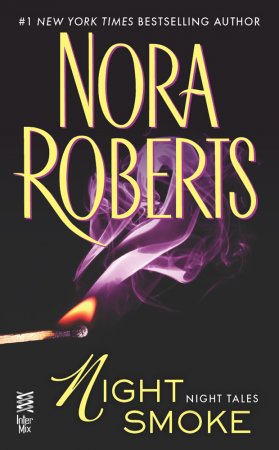 Night Smoke
Night Smoke Finding the Dream
Finding the Dream Red Lily
Red Lily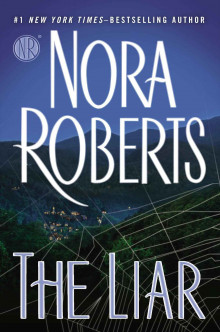 The Liar
The Liar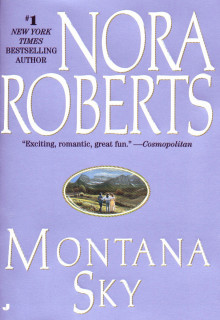 Montana Sky
Montana Sky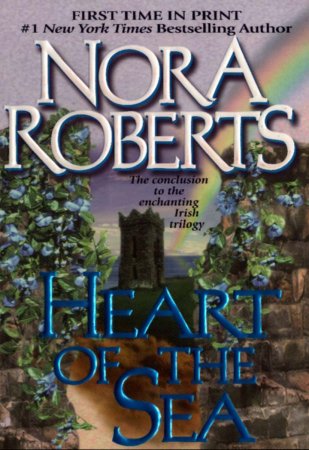 Heart of the Sea
Heart of the Sea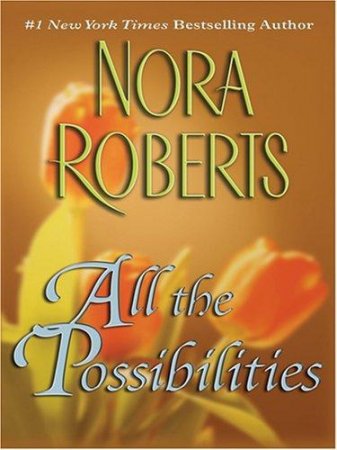 All The Possibilities
All The Possibilities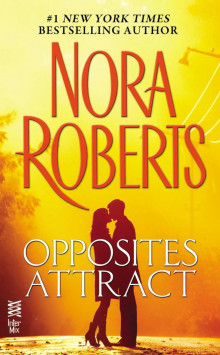 Opposites Attract
Opposites Attract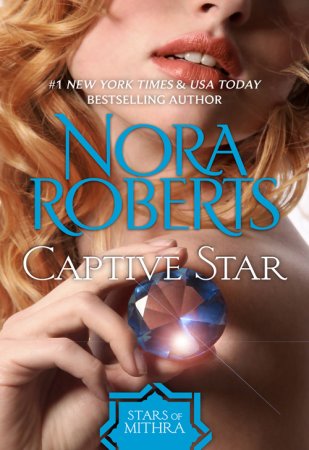 Captive Star
Captive Star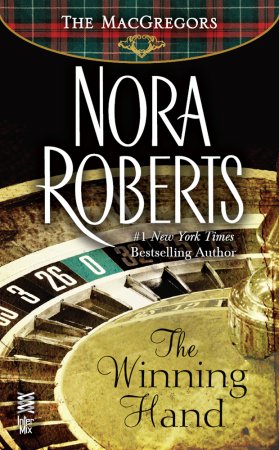 The Winning Hand
The Winning Hand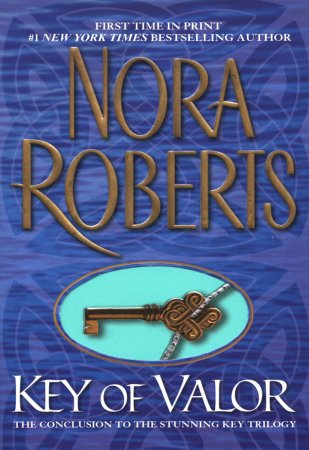 Key of Valor
Key of Valor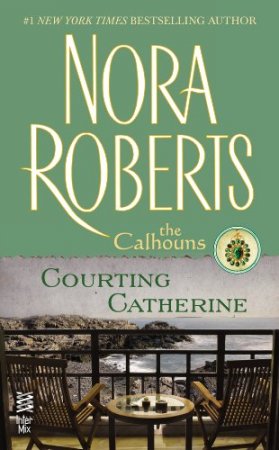 Courting Catherine
Courting Catherine Heaven and Earth
Heaven and Earth Face the Fire
Face the Fire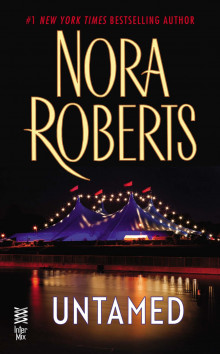 Untamed
Untamed Skin Deep
Skin Deep Enchanted
Enchanted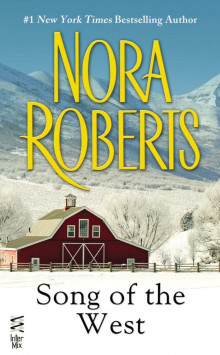 Song of the West
Song of the West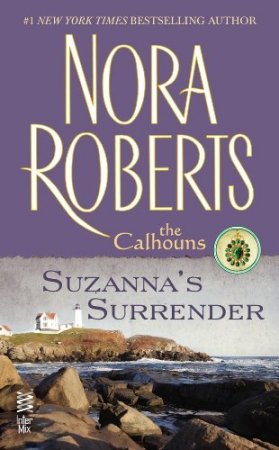 Suzanna's Surrender
Suzanna's Surrender Entranced
Entranced Dance of the Gods
Dance of the Gods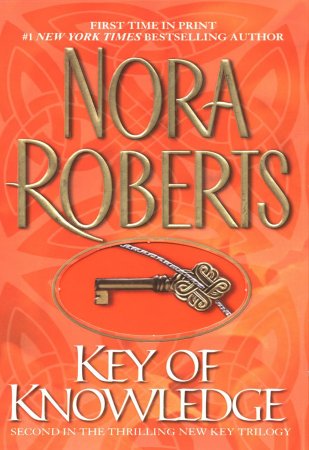 Key of Knowledge
Key of Knowledge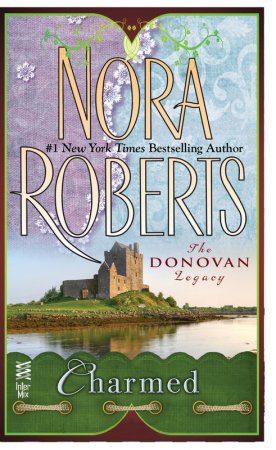 Charmed
Charmed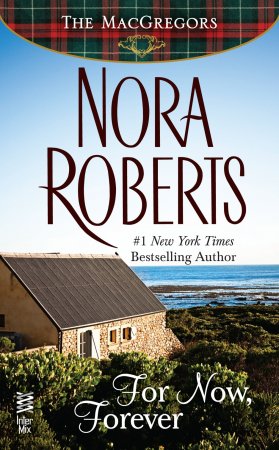 For Now, Forever
For Now, Forever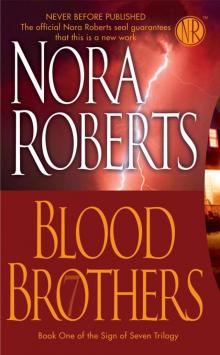 Blood Brothers
Blood Brothers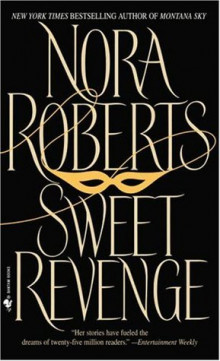 Sweet Revenge
Sweet Revenge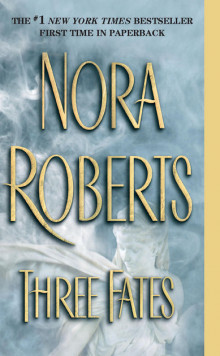 Three Fates
Three Fates Mind Over Matter
Mind Over Matter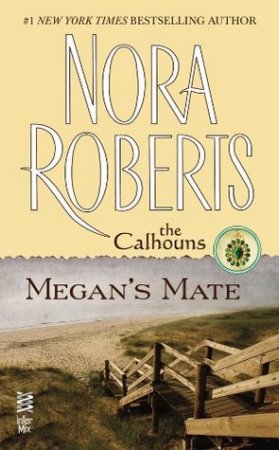 Megan's Mate
Megan's Mate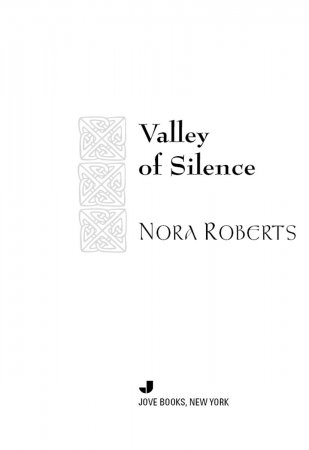 Valley of Silence
Valley of Silence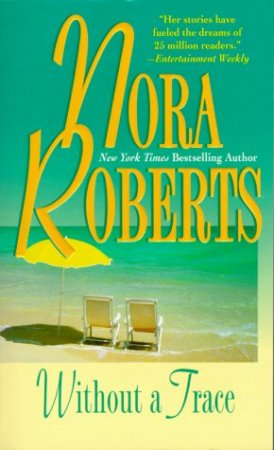 Without A Trace
Without A Trace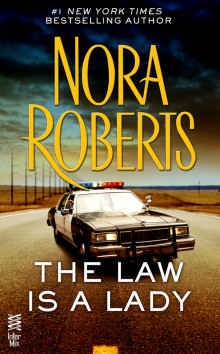 The Law is a Lady
The Law is a Lady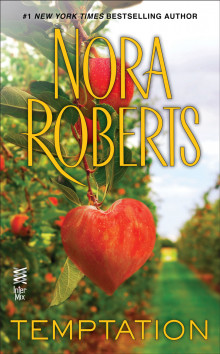 Temptation
Temptation Dance to the Piper
Dance to the Piper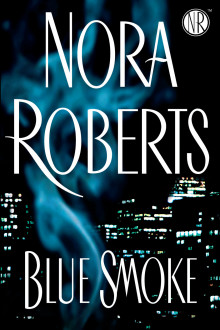 Blue Smoke
Blue Smoke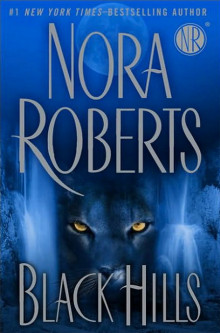 Black Hills
Black Hills The Heart's Victory
The Heart's Victory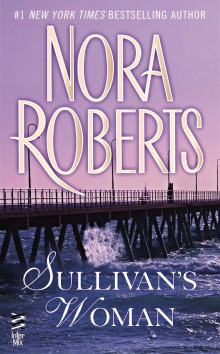 Sullivan's Woman
Sullivan's Woman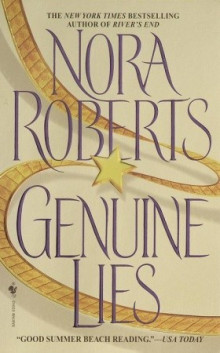 Genuine Lies
Genuine Lies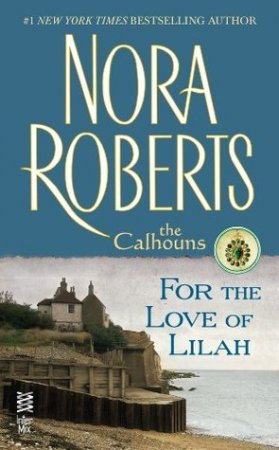 For the Love of Lilah
For the Love of Lilah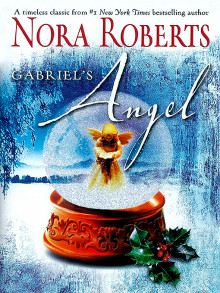 Gabriel's Angel
Gabriel's Angel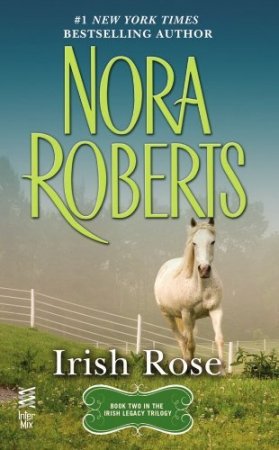 Irish Rose
Irish Rose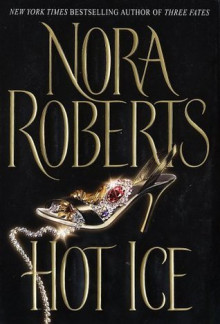 Hot Ice
Hot Ice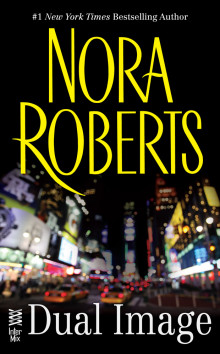 Dual Image
Dual Image Lawless
Lawless Catch My Heart
Catch My Heart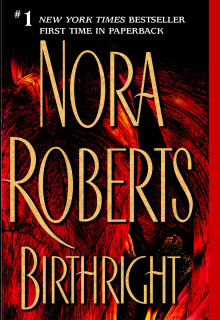 Birthright
Birthright First Impressions
First Impressions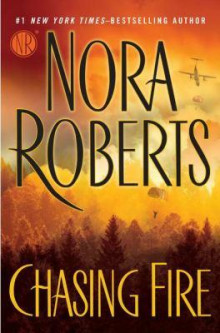 Chasing Fire
Chasing Fire Carnal Innocence
Carnal Innocence Best Laid Plans
Best Laid Plans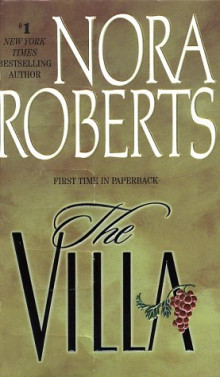 The Villa
The Villa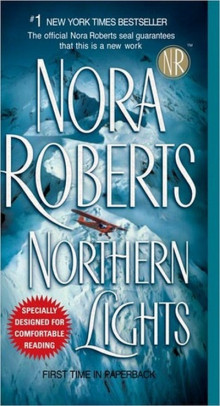 Northern Lights
Northern Lights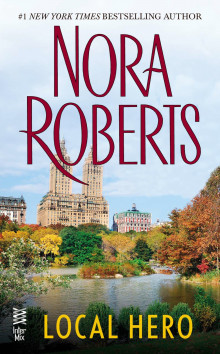 Local Hero
Local Hero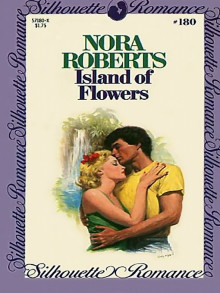 Island of Flowers
Island of Flowers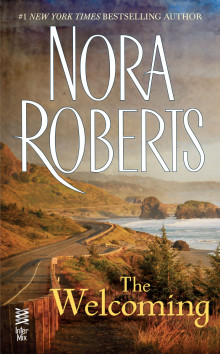 The Welcoming
The Welcoming All I Want for Christmas
All I Want for Christmas Black Rose
Black Rose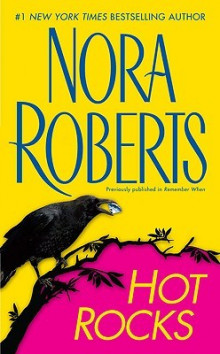 Hot Rocks
Hot Rocks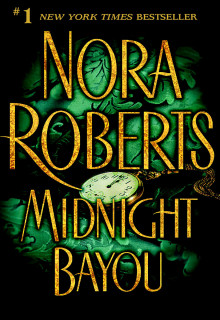 Midnight Bayou
Midnight Bayou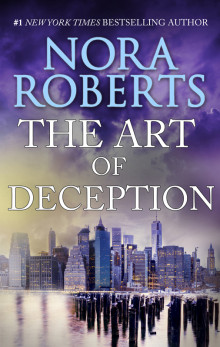 The Art of Deception
The Art of Deception From This Day
From This Day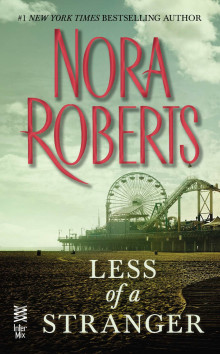 Less of a Stranger
Less of a Stranger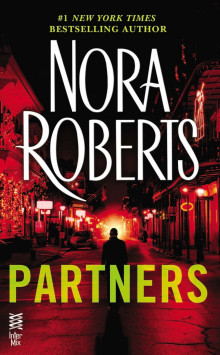 Partners
Partners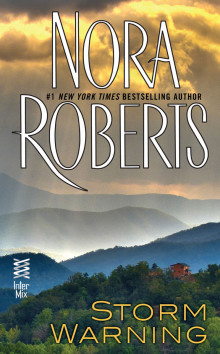 Storm Warning
Storm Warning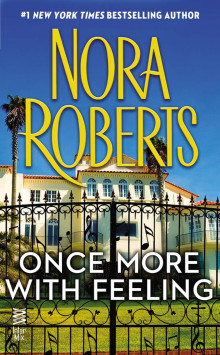 Once More With Feeling
Once More With Feeling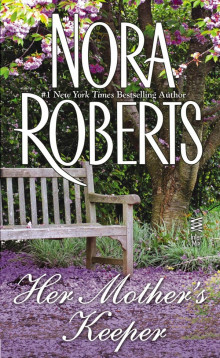 Her Mother's Keeper
Her Mother's Keeper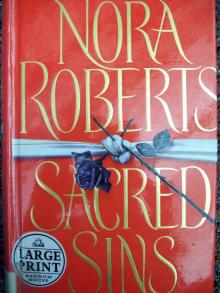 Sacred Sins
Sacred Sins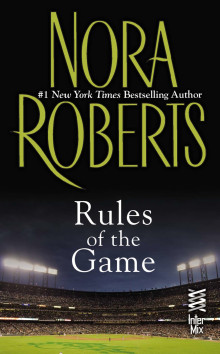 Rules of the Game
Rules of the Game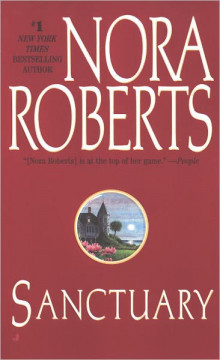 Sanctuary
Sanctuary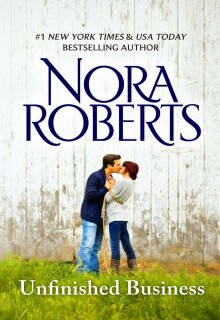 Unfinished Business
Unfinished Business Cordina's Royal Family Collection
Cordina's Royal Family Collection Dangerous Embrace
Dangerous Embrace One Summer
One Summer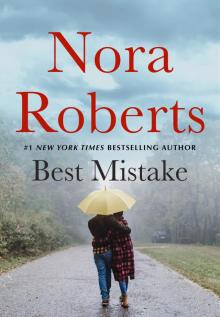 The Best Mistake
The Best Mistake Boundary Lines
Boundary Lines Under Currents
Under Currents The Stanislaski Series Collection, Volume 1
The Stanislaski Series Collection, Volume 1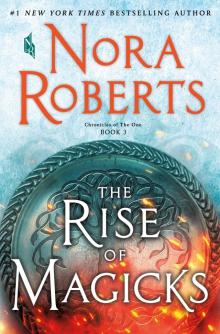 The Rise of Magicks
The Rise of Magicks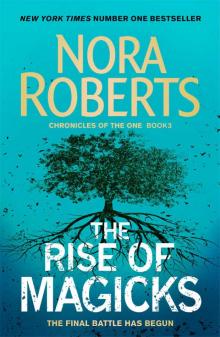 The Rise of Magicks (Chronicles of The One)
The Rise of Magicks (Chronicles of The One) The Awakening: The Dragon Heart Legacy Book 1
The Awakening: The Dragon Heart Legacy Book 1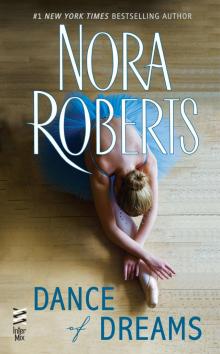 Dance of Dreams
Dance of Dreams Skin Deep: The O'Hurleys
Skin Deep: The O'Hurleys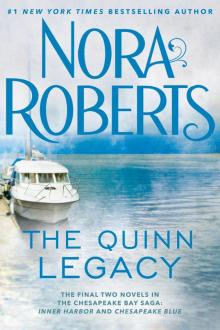 The Quinn Legacy: Inner Harbor ; Chesapeake Blue
The Quinn Legacy: Inner Harbor ; Chesapeake Blue![[Chronicles of the One 03.0] The Rise of Magicks Read online](http://i1.bookreadfree.com/11/chronicles_of_the_one_03_0_the_rise_of_magicks_preview.jpg) [Chronicles of the One 03.0] The Rise of Magicks
[Chronicles of the One 03.0] The Rise of Magicks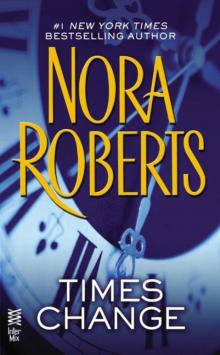 Times Change
Times Change Dance to the Piper: The O'Hurleys
Dance to the Piper: The O'Hurleys Christmas In the Snow: Taming Natasha / Considering Kate
Christmas In the Snow: Taming Natasha / Considering Kate Waiting for Nick
Waiting for Nick Summer Desserts
Summer Desserts Dream 2 - Holding the Dream
Dream 2 - Holding the Dream The Novels of Nora Roberts, Volume 2
The Novels of Nora Roberts, Volume 2 In the Garden Trilogy
In the Garden Trilogy Eight Classic Nora Roberts Romantic Suspense Novels
Eight Classic Nora Roberts Romantic Suspense Novels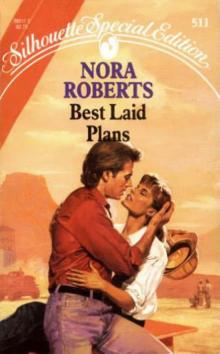 Best Laid Plans jh-2
Best Laid Plans jh-2 From the Heart
From the Heart Holiday Wishes
Holiday Wishes Dream 1 - Daring to Dream
Dream 1 - Daring to Dream Second Nature
Second Nature Summer Pleasures
Summer Pleasures Once Upon a Castle
Once Upon a Castle Stars of Mithra Box Set: Captive StarHidden StarSecret Star
Stars of Mithra Box Set: Captive StarHidden StarSecret Star Impulse
Impulse The Irish Trilogy by Nora Roberts
The Irish Trilogy by Nora Roberts The Pride Of Jared Mackade tmb-2
The Pride Of Jared Mackade tmb-2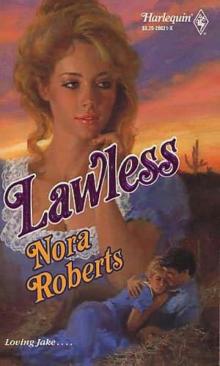 Lawless jh-3
Lawless jh-3 Taming Natasha
Taming Natasha Endless Summer
Endless Summer Bride Quartet Collection
Bride Quartet Collection Happy Ever After tbq-4
Happy Ever After tbq-4 Heart Of The Sea goa-3
Heart Of The Sea goa-3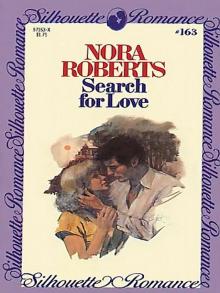 Search for Love
Search for Love Once upon a Dream
Once upon a Dream Once Upon a Star
Once Upon a Star Dream Trilogy
Dream Trilogy Risky Business
Risky Business The Novels of Nora Roberts, Volume 3
The Novels of Nora Roberts, Volume 3 Dream 3 - Finding the Dream
Dream 3 - Finding the Dream Promises in Death id-34
Promises in Death id-34 The Novels of Nora Roberts, Volume 4
The Novels of Nora Roberts, Volume 4 The Perfect Hope ib-3
The Perfect Hope ib-3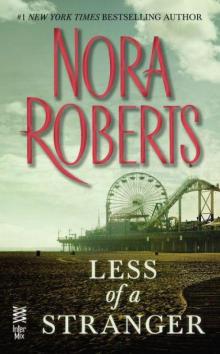 Less than a Stranger
Less than a Stranger Savour the Moment: Now the Big Day Has Finally Arrived, It's Time To...
Savour the Moment: Now the Big Day Has Finally Arrived, It's Time To... Convincing Alex
Convincing Alex Bed of Roses tbq-2
Bed of Roses tbq-2 Savour the Moment tbq-3
Savour the Moment tbq-3 Lessons Learned
Lessons Learned Key Of Valor k-3
Key Of Valor k-3 Red lily gt-3
Red lily gt-3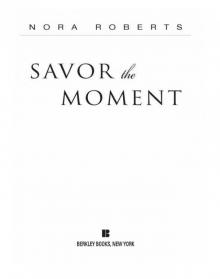 Savor the Moment
Savor the Moment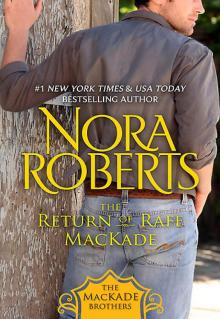 The Return Of Rafe Mackade tmb-1
The Return Of Rafe Mackade tmb-1 For The Love Of Lilah tcw-3
For The Love Of Lilah tcw-3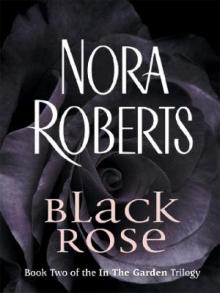 Black Rose gt-2
Black Rose gt-2 Novels: The Law is a Lady
Novels: The Law is a Lady Chesapeake Bay Saga 1-4
Chesapeake Bay Saga 1-4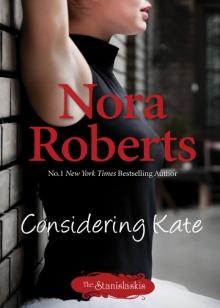 Considering Kate
Considering Kate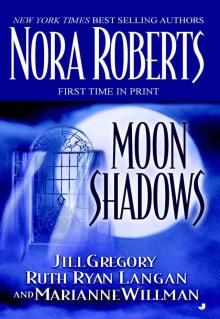 Moon Shadows
Moon Shadows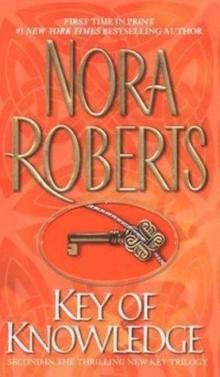 Key of Knowledge k-2
Key of Knowledge k-2 The Sign of Seven Trilogy
The Sign of Seven Trilogy Once Upon a Kiss
Once Upon a Kiss The Novels of Nora Roberts, Volume 5
The Novels of Nora Roberts, Volume 5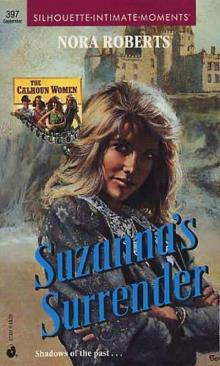 Suzanna's Surrender tcw-4
Suzanna's Surrender tcw-4 The Quinn Brothers
The Quinn Brothers Falling for Rachel
Falling for Rachel Brazen Virtue
Brazen Virtue Time Was
Time Was The Gallaghers of Ardmore Trilogy
The Gallaghers of Ardmore Trilogy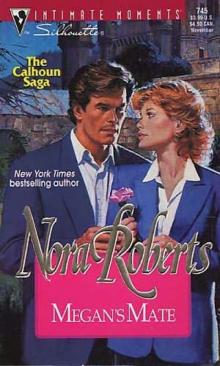 Megan's Mate tcw-5
Megan's Mate tcw-5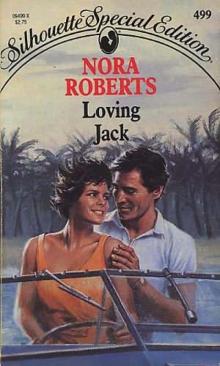 Loving Jack jh-1
Loving Jack jh-1 Rebellion & In From The Cold
Rebellion & In From The Cold Blue Dahlia gt-1
Blue Dahlia gt-1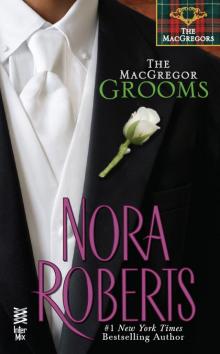 The MacGregor Grooms
The MacGregor Grooms The Next Always tibt-1
The Next Always tibt-1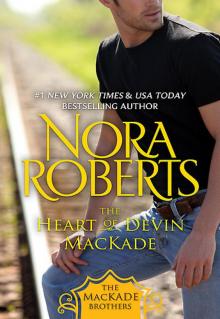 The Heart Of Devin Mackade tmb-3
The Heart Of Devin Mackade tmb-3 The Novels of Nora Roberts Volume 1
The Novels of Nora Roberts Volume 1 Treasures Lost, Treasures Found
Treasures Lost, Treasures Found Nora Roberts's Circle Trilogy
Nora Roberts's Circle Trilogy The Key Trilogy
The Key Trilogy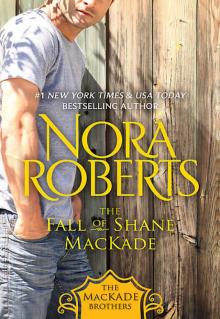 The Fall Of Shane Mackade tmb-4
The Fall Of Shane Mackade tmb-4 A Will And A Way
A Will And A Way Jewels of the Sun goa-1
Jewels of the Sun goa-1 Luring a Lady
Luring a Lady